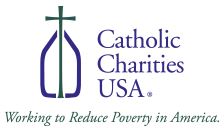Who is my Neighbor?
A Reflection on the Parable of the Good Samaritan
in Light of the Shootings this Week
July 10, 2016
Gospel Lk 10:25-37
There was a scholar of the law who stood up to test him and said,
“Teacher, what must I do to inherit eternal life?”
Jesus said to him, “What is written in the law?
How do you read it?”
He said in reply,
“You shall love the Lord, your God,
with all your heart,
with all your being,
with all your strength,
and with all your mind,
and your neighbor as yourself.”
He replied to him, “You have answered correctly;
do this and you will live.”
But because he wished to justify himself, he said to Jesus,
“And who is my neighbor?”
Jesus replied,
“A man fell victim to robbers
as he went down from Jerusalem to Jericho.
They stripped and beat him and went off leaving him half-dead.
A priest happened to be going down that road,
but when he saw him, he passed by on the opposite side.
Likewise a Levite came to the place,
and when he saw him, he passed by on the opposite side.
But a Samaritan traveler who came upon him
was moved with compassion at the sight.
He approached the victim,
poured oil and wine over his wounds and bandaged them.
Then he lifted him up on his own animal,
took him to an inn, and cared for him.
The next day he took out two silver coins
and gave them to the innkeeper with the instruction,
‘Take care of him.
If you spend more than what I have given you,
I shall repay you on my way back.’
Which of these three, in your opinion,
was neighbor to the robbers’ victim?”
He answered, “The one who treated him with mercy.”
Jesus said to him, “Go and do likewise.”
The scholar of the law in today’s gospel asks, “Who is my neighbor?” As we reflect on the events of the past week, we would do well to consider this question also. Who is my neighbor? Who is important to me? Who do I care about? Or who is the foreigner? Who is less important? Who can I safely ignore? Who is not worthy of my love, my compassion, or even my attention?
Is my neighbor:
- the black victims of the police shooting?
- the protesters who peacefully exercised their first amendment rights?
- the police officers who defended and protected the demonstrators?
- or the sniper and the inexperienced patrolmen who killed?
Jesus says yes! Yes to all of them. In every conflict there are heroes and villains. Those we agree with and those we disagree with. We like to think that we are the heroes in our own stories. In our lives, too, we all have friends and enemies, and even those people we just can’t stand. Jesus says love them anyway. Pray for those who persecute you, stand up for the rights of the marginalized and abused.
Bigotry is not a new concept. This gospel passage challenges the bigotry of Jesus’ time as well. Between 740 and 722 BC, Assyria conquered and sent into exile the Northern Kingdom of Israel. During the exile, the Israelites began to marry and have children with the Assyrians, so within a few generations there were no longer “pure-blood” Israelites. Then, 200 years later, from 598 to 586 BC, the Southern Kingdom of Judah was conquered by Babylon, and also led into exile. The Judahites, however, remained separate from the Babylonians, so their descendants were rightly called Jews (from Judah). When the exiles ended, the descendants of the Northern Kingdom returned to the area known as Samaria, and the Jews returned to Judea. Thus was bigotry born: the Jews saw the Samaritans as inferior, and the Samaritans resented them for it. It was not much different than what we experience today.
Because of this, 500 years later, when Jesus used a Samaritan as the hero of the story, it shocked his Jewish listeners. Furthermore, to show the priest and the Levite as the “bad guys” was also shocking. They were supposed to be holy, blessed by God. There is some justification for their avoidance of the dying man; as we know, dead bodies carry disease that can be transferred from person to person, and religious leaders were especially careful to not contaminate themselves, so that they didn’t accidentally start a plague or pestilence in the community. However, they didn’t even bother to check to see if the injured man was dead or alive! They were too concerned about their own “purity” to exercise a small amount of compassion for a fellow traveler.
How many times do we make selfish choices? How often do we think, “That’s someone else’s problem”? Are we the ones who say, “That’s a job for Congress, the Police Chief, or even the Pastor”? How many people have to die, or be pushed aside, until we speak out? Where is the line between the people I am willing to defend and the people I am willing to sacrifice? It shouldn’t matter if they are Republicans or Democrats, white, black, or brown, rich or poor. As baptized Christians, Jesus calls US to speak for those who have no voice; he calls US to defend the weak; he calls US to strive for change in our families, in our communities, and in the world.
There are too many voices in the world pointing out differences and deepening divisions in our society. What we need is more people striving for healing and unity. “Who is my neighbor?” Victim or perpetrator, everyone in the world has a right to life, justice, and dignity, and each of us has a responsibility to provide them.


